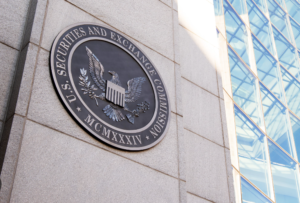$BAC $SPX $BTC
#BankofAmerica #FundManagerSurvey #StockMarket #Investing #WallStreet #MarketTrends #EconomicOutlook #InterestRates #Cryptocurrency #FederalReserve #DonaldTrump #Golf
Bank of America’s latest Fund Manager Survey offers key insights into how institutional investors are positioning themselves amid shifting market dynamics. The survey, a widely followed gauge of sentiment among professional money managers, indicates that concerns over inflation and Federal Reserve policy remain central to investment strategies. Notably, fund managers have demonstrated a growing preference for large-cap U.S. equities, reflecting confidence in the resilience of corporate earnings despite macroeconomic uncertainty. Moreover, allocations to cash remain elevated, suggesting that many investors are waiting for clearer signals before committing to riskier assets. The survey also points to diverging views on fixed income, as some managers anticipate a soft landing while others hedge against potential volatility.
Equity markets continue to be influenced by monetary policy expectations, with the S&P 500 ($SPX) showing strength as investors digest inflation data and central bank moves. The survey highlights that the most crowded trade remains “long Big Tech,” signaling that institutional investors still favor mega-cap technology stocks as relatively safe bets. This allocation preference has broader implications for market breadth, as sectoral leadership remains concentrated rather than dispersed. Some fund managers are also looking at alternative assets, including Bitcoin ($BTC), as hedges against monetary policy uncertainty and potential dollar weakness. The flight to safety observed in previous months appears to be waning slightly, yet risk appetite remains tempered by ongoing macroeconomic headwinds.
Aside from equities and bonds, the survey sheds light on sentiment around economic growth and fiscal policy. Concerns about higher-for-longer interest rates persist, with a significant portion of fund managers expecting rates to remain elevated well into 2025. This sentiment aligns with Federal Reserve messaging, which suggests that inflation risks remain significant despite recent disinflationary trends. Additionally, with geopolitical risks and election uncertainty looming, investors remain cautious about how fiscal policy could impact growth trajectories. The impact of potential tax hikes, regulatory changes, and trade policies are key considerations in investment decision-making. The fact that Donald Trump’s presence in the political landscape was subtly referenced in the survey data—as seen through images of him playing golf—further underscores the importance of political developments on market sentiment.
Taken together, the survey results paint a picture of a market in transition, characterized by cautious optimism but underscored by structural challenges. While liquidity remains ample and corporate balance sheets appear healthy, concerns over credit conditions and earnings sustainability persist. The preference for defensive positioning suggests that investors are bracing for potential volatility, even as they selectively seek growth opportunities. As markets digest incoming economic data and Fed rhetoric, sentiment will likely continue to evolve in response to new developments. For now, institutional investors appear committed to a balanced approach, carefully weighing risks and opportunities in an ever-shifting financial landscape.











Comments are closed.